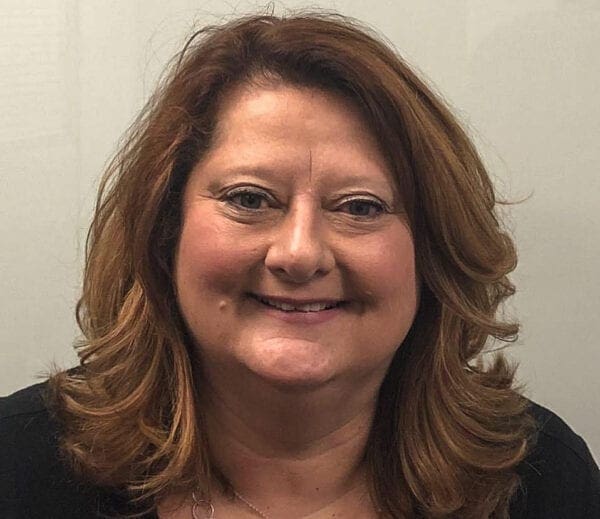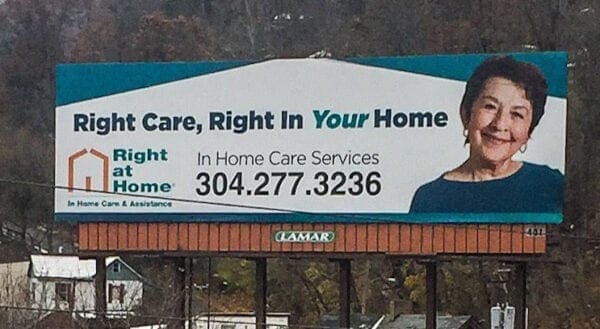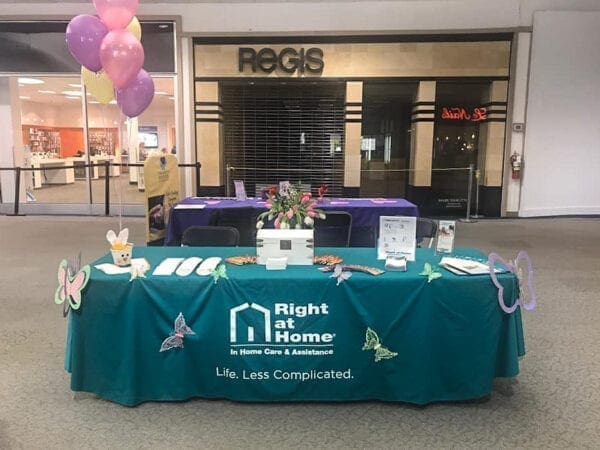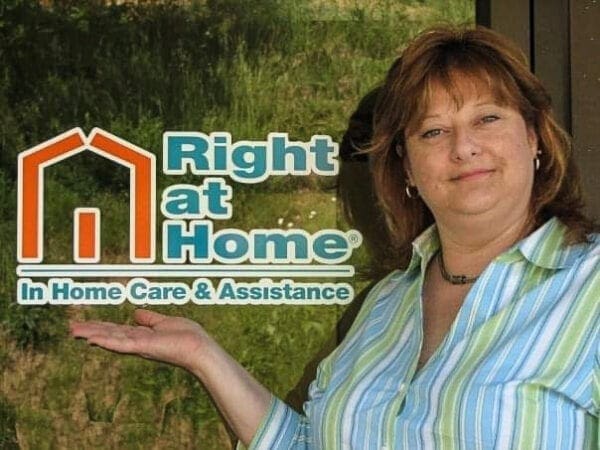Her initial introduction to dementia took place when her grandmother began forgetting the simple things.
Then, the behavior extended to confusing actions and to falls that seemed to accelerate her cognitive decline. April Wintermoyer was there for her, though, even saving her once by crawling under the door of a bathroom stall. Grandma had forgotten how to let herself out.
For those reasons and many more, Wintermoyer has owned the Right at Home offices in Wheeling and Morgantown for more than a decade. Her staff members offer many different services, including respite care and home care. It’s all about Right at Home’s Custom Care Plan because the client determines the schedule for the company’s caregivers.
And yes, the Covid-19 pandemic added challenges for loved ones and Right at Home caregivers, but Wintermoyer took a proactive approach to protect all involved. With direction from the state Department of Health and Human Resources and the federal Center for Disease Control, she equipped her staff members in both West Virginia cities to provide protection from the coronavirus.
Plus, to Wintermoyer it has been about educating her employees and the families served by Right at Home so everyone could be on the same page as services are delivered. The pandemic, though, has not stopped Wintermoyer from offering solid advice as to how to avoid dementia-related diseases later in life.

What have been the most difficult challenges for your staff during this coronavirus pandemic?
PPE. Honestly – having it and wearing it.
Our client’s want to be safe, and they know from the news what is necessary, but to be honest caregivers wearing masks and gloves in their homes is a big inconvenience. Many of our seniors do not hear well. They read lips and watch faces to be able to communicate. We have tried the “clear” masks, but much improvement is needed. Our clients also do not really feel that gloves are necessary in the home. They understand when dealing with incontinence issues, but they really do not like them for general use. Our clients want to be in their home and to feel like they are home.
Their feeling surrounding “home” sometimes means that they do not appreciate the steps we are taking to make sure they are safe from the germs of the world. Conversely, others are very aware and very afraid. Sometimes it is the family. They want to KNOW that there is zero chance their loved one could come in contact with germs. It is a balancing act.

What safety precautions have been implemented by your caregivers while caring for Right at Home’s clients?
All caregivers are equipped with gloves, masks, shoe covers, hand sanitizer, antibacterial soap, antibacterial cleaner, and paper towels. Infection control gowns, goggles, and n95 masks area available as needed.
What questions have clients asked most frequently about the coronavirus and the future?
Clients and their families want to know if we test every caregiver for the virus and how often. Answer: we don’t. It is impossible to keep up with the time lag for results movement within the community. By following CDC guidelines, screening caregivers for symptoms each shift, educating on infection control, requiring masks for caregiving, and providing abundant PPE, we are doing everything we can to make our caregivers the safest in the industry.
What are the best ways to prevent experiencing cognitive decline during an adult’s later years?
One word – ACTIVITY. Mental activity keeps the neuron paths open and active. Physical activity keeps so many parts of the brain and the body active and useful. Social activity stimulates the mind and the brain as well as encourages us to be physically active!

What is the biggest mistake you believe most people make when it comes to remaining healthy throughout their lives?
Retiring. Previous generations defined retirement as a sedentary state. Reading, television, and resting can all contribute to a lifestyle that is too sedentary.
We think we can be active “tomorrow.” There is no time like today to begin a hobby, an exercise program, joining a walking club, or simply taking a stroll.


